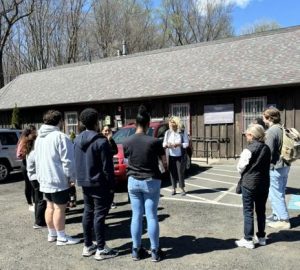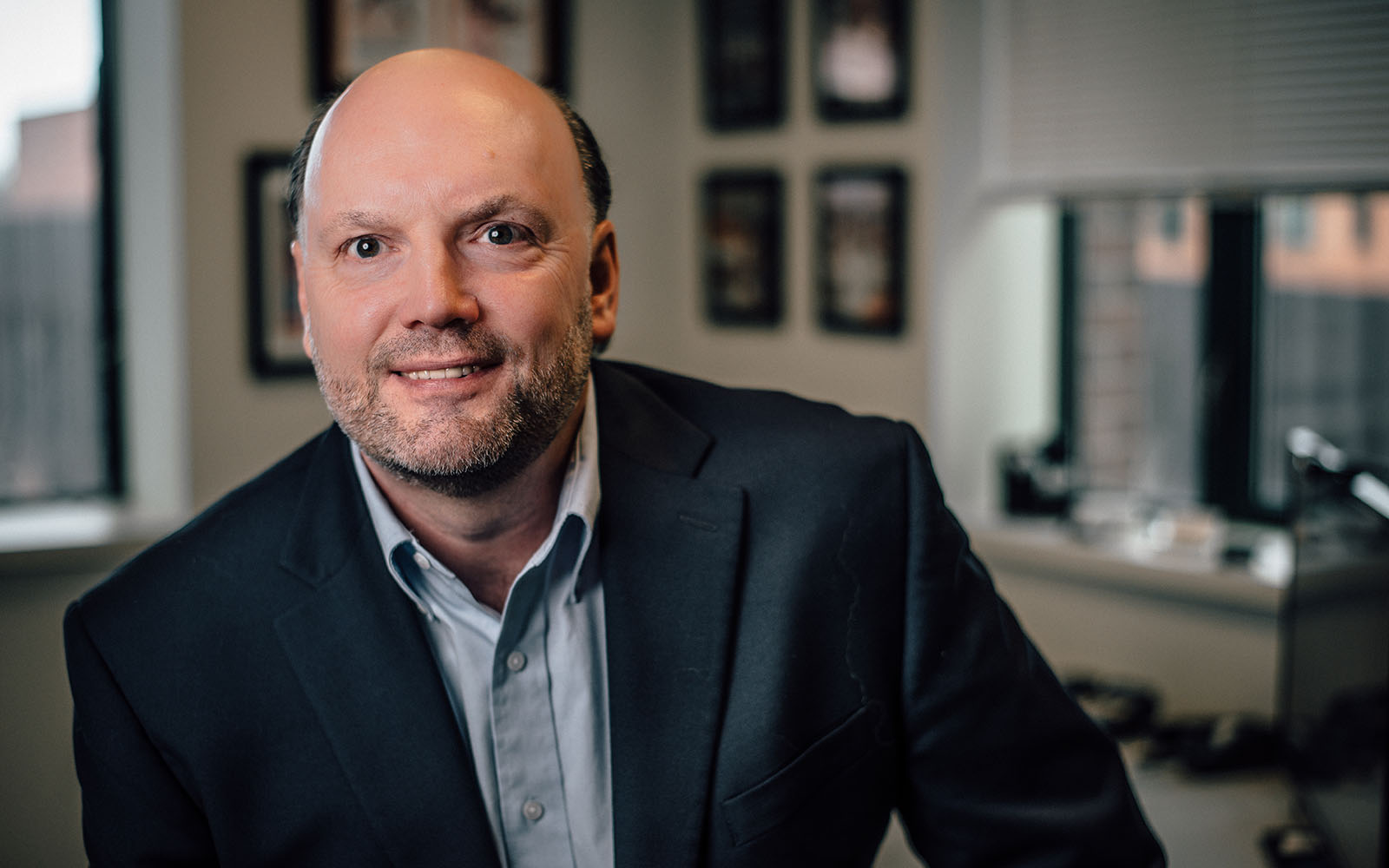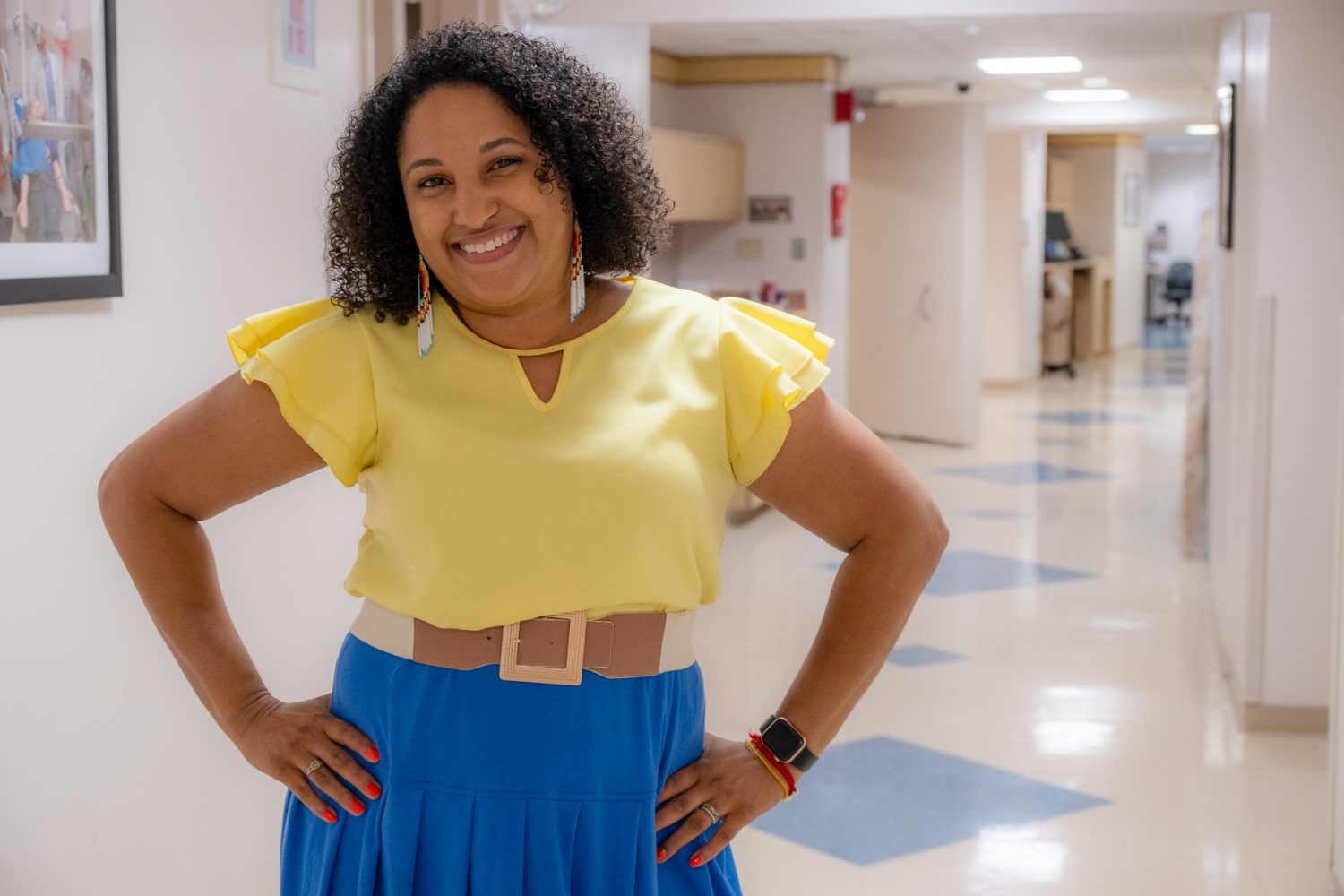Thanks to an innovative course funded through the Hartford Matters Teaching Grant program, a group of UConn Hartford students recently learned about the benefits of psychotherapy – on horseback.
In April, students from Professor Kim Price-Glynn’s Sociology of Carework course visited Ebony Horsewomen, Inc. (EHI) in Hartford. The EHI trip was made possible by a Hartford Matters Teaching Grant awarded to Price-Glynn.
The grant program, funded through the UConn Hartford director’s office, builds on the campus’ location, commitment to social justice, and innovative student engagement through collaboration between UConn Hartford faculty and organizations in the capital city. With this funding the class was able to learn firsthand about EHI’s equine-assisted psychotherapy program, which addresses a variety of mental health issues, emphasizing cultural competency, diversity, and inclusion training and outreach.
“I developed the Sociology of Carework course so students could better understand the social organization of care,” Dr. Price-Glynn says. “Care includes the resources necessary to meet people’s most fundamental emotional and physical needs, provided by paid and unpaid caregivers. While everyone needs care, for children, the elderly, disabled persons, and those with short and long-term illnesses, carework is essential. Though everyone can provide care, not everyone does in equal measure – carework is shaped by long standing inequalities.”

Studying carework is not new for Dr. Price-Glynn. “For a decade prior to the COVID-19 pandemic, I contributed to an increasing scholarly focus on paid and unpaid caregiving through my research and participation in the Carework Network, an international organization of care researchers, policymakers, and advocates. Like so many others living through the pandemic, I realized the importance of this historic moment to foster better understandings of care and the long-standing care crisis made far worse by COVID-19.”
EHI, founded in 1984 by President and CEO Patricia Kelly, was included in Dr. Price-Glynn’s course because of its innovations in care. At Keney Park-based EHI, children are given a chance to connect with nature and therapy animals through the facility’s 18 horses, indoor arena, and miles of riding trails stretching through the park. Some other features of the facility include on-site licensed therapists, riding lesson instructors, and a kitchen where children can learn to cook and eat healthy foods.
According to Kelly, an equine-assisted approach to psychotherapy is effective for children who may have a hard time communicating their feelings, because of the horses’ natural traits and instincts.
“Horses are very, very suspicious of us,” says Kelly. “They are our lie detector test. Their skin is so sensitive that it is attuned to our vitals.” The horse becomes a diagnostic tool for EHI’s culturally competent licensed clinical therapists, Kelly explains.
As the EHI website explains, “Cultural education for health care professionals is an important component of improving the quality of care delivered to diverse patient populations and can help in addressing racial/ethnic disparities in health care.”
Alayla Salaman ’25 (CLAS), a student enrolled in the course, reflected on the environment and innovations created by EHI’s staff: “The good energy and environment they created there in the middle of the city is really interesting and a positive addition to the community. It was unbelievable to hear about the therapeutic work these horses do. I’ve never heard of horses being used in that way before. I believe more people should know about their services and the good work that they do there so hopefully they can expand their legacy and it carries on.”



